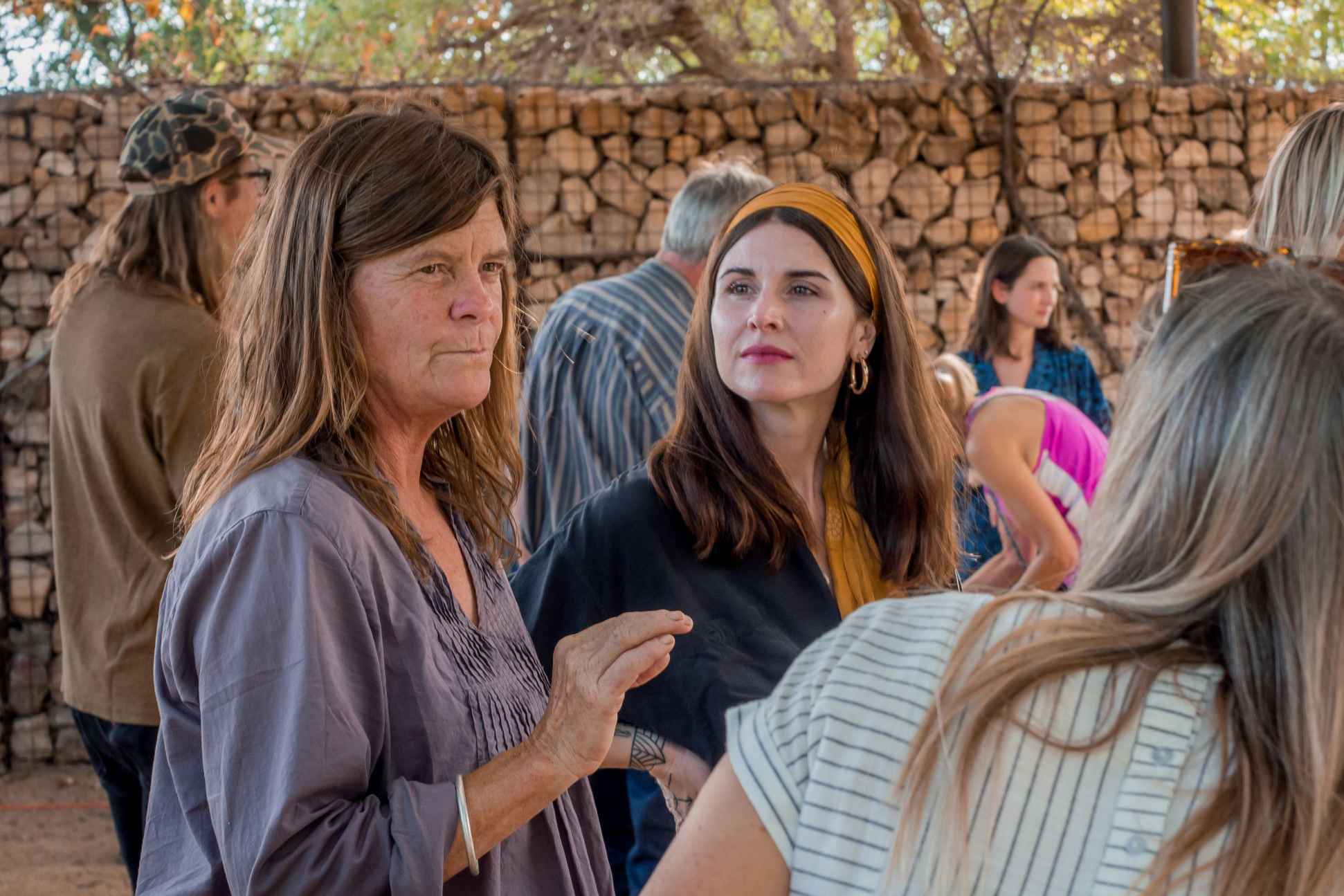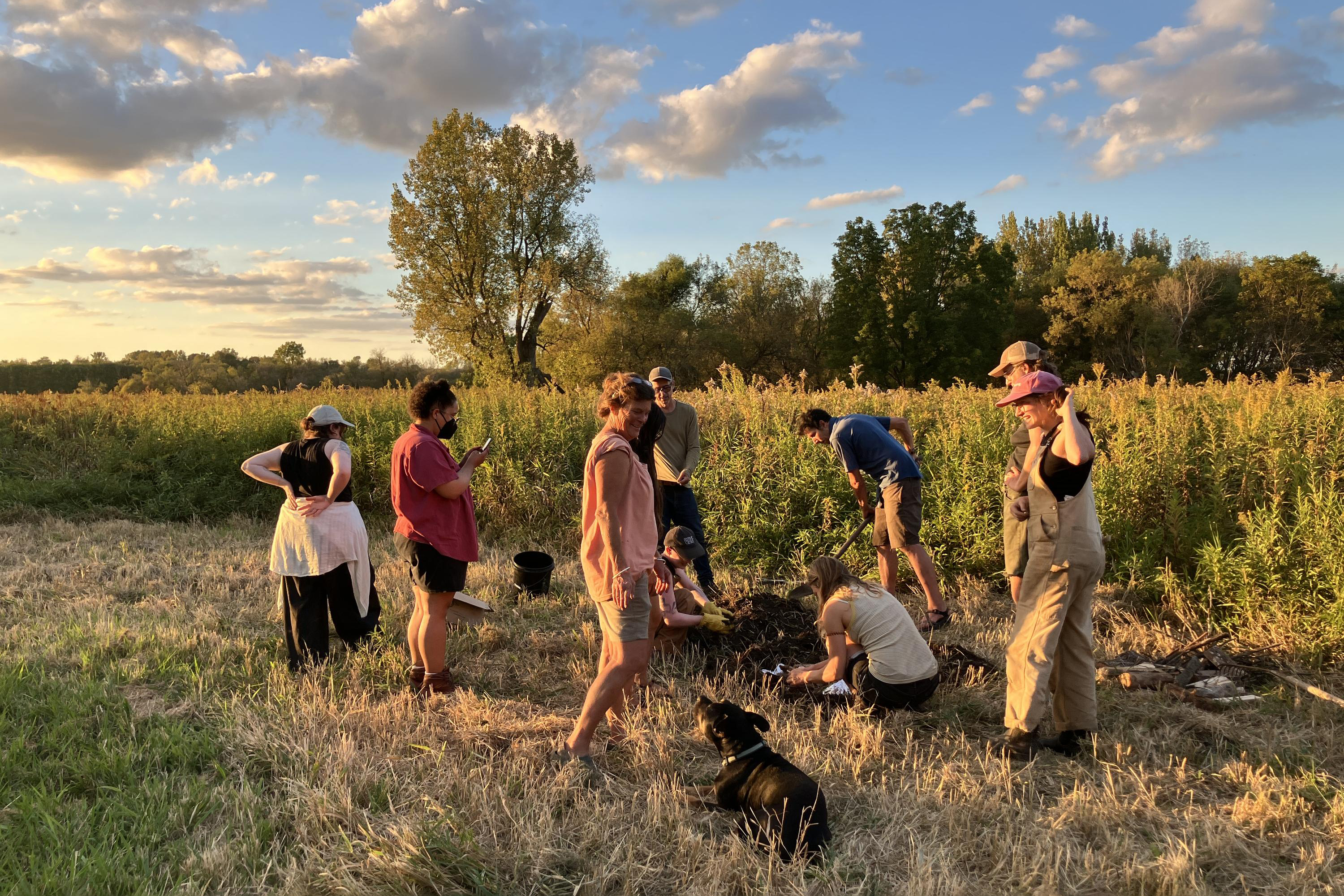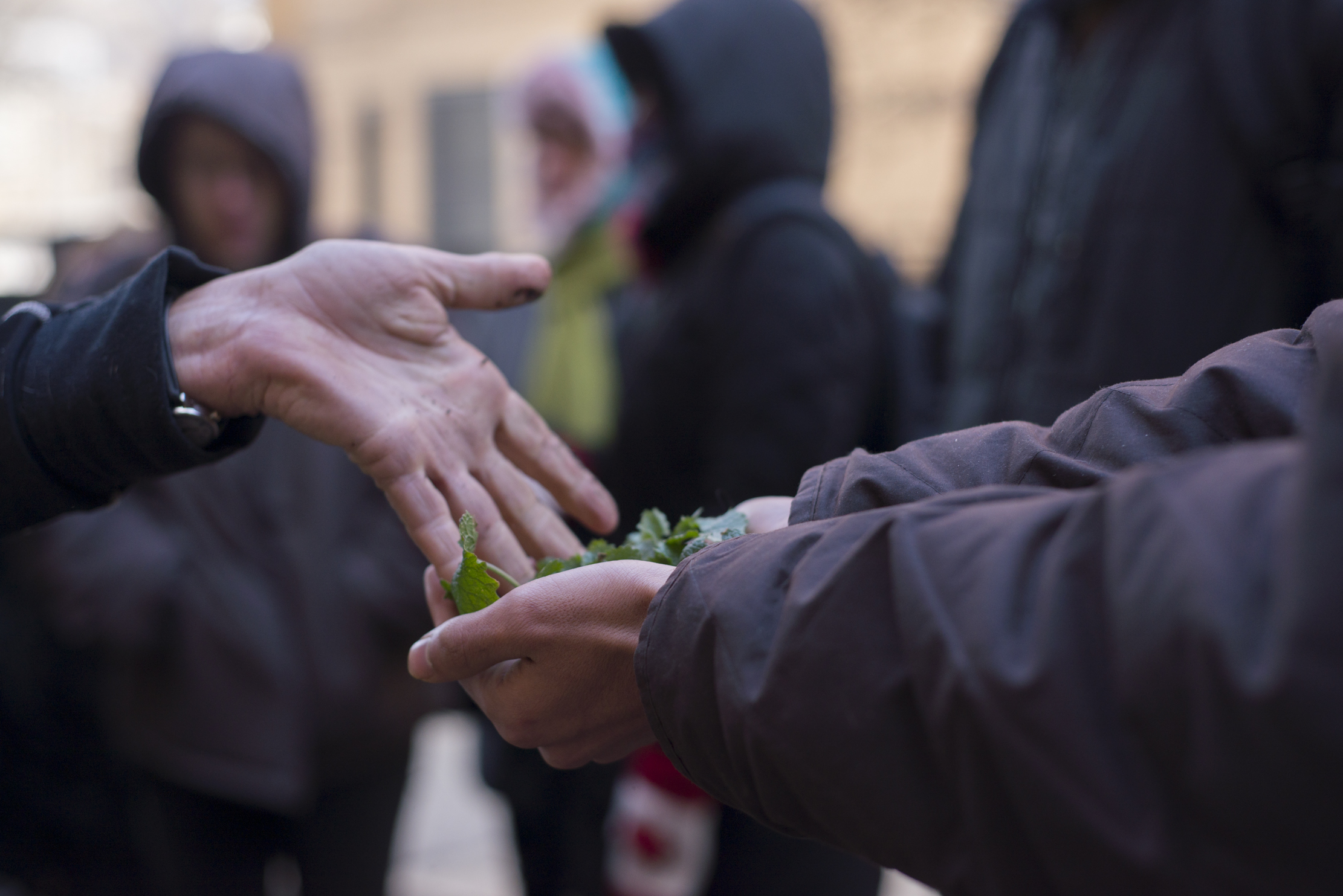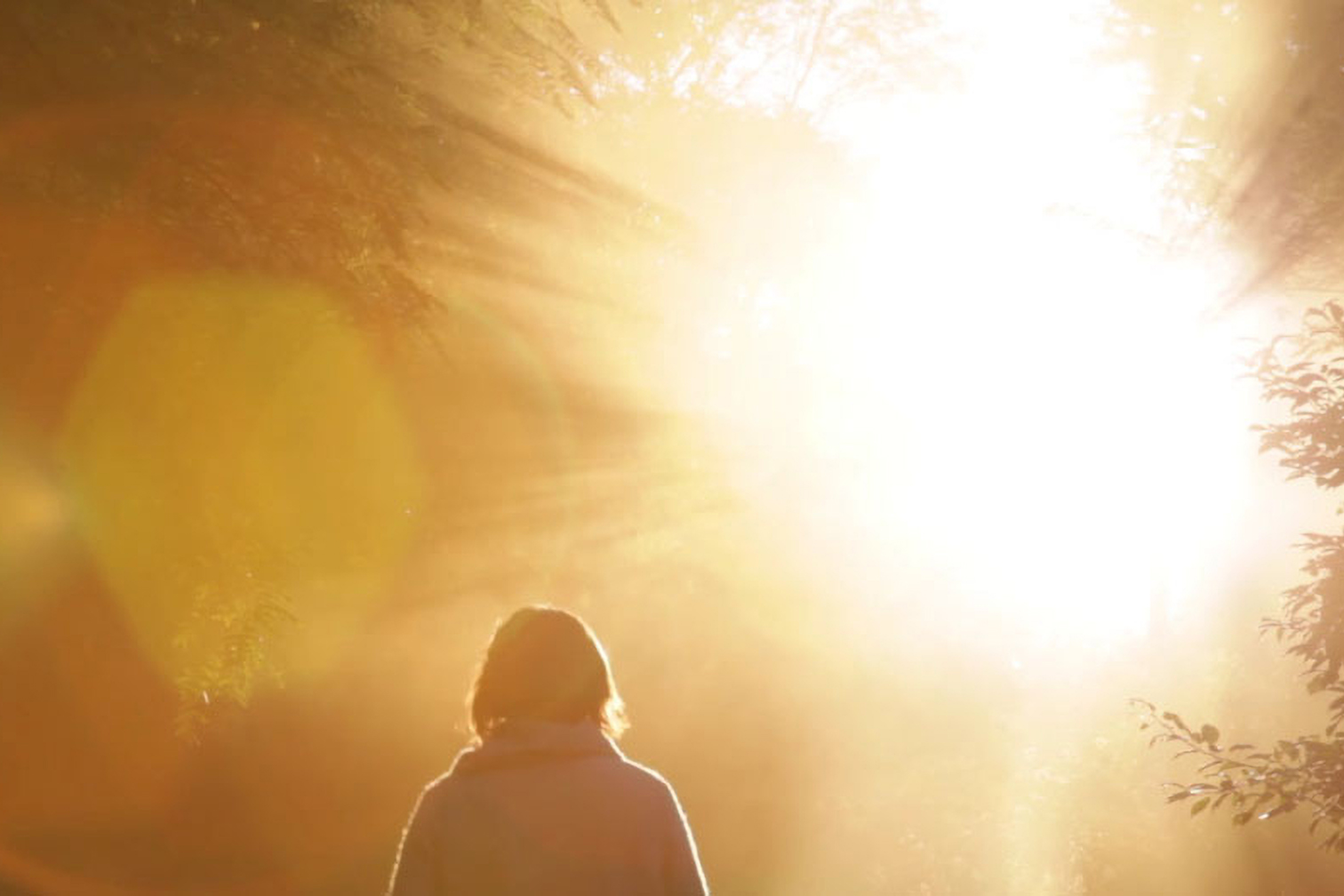Spontaneous Vegetation
 Selected Works
Selected Works
Nance Klehm’s work and being lies at the complex intersections of the theory and practice of land politics and soil health. She seeks to embody the mundane magic of relationships built with land and place, to empower people to know and honor the complexities of social ecology, and to bridge the gaps between the folk hero day-to-day of skinned-knuckle activism, and the theoretical practices of the academy, gallery, or studio.

Nance’s work as a communicator, translator, curator, provocateur, and medium is internationally recognized in communities of practice ranging from publishing to fine art, environmental justice activism to philosophy, growing to podcasting. She lives her work — she writes, facilitates, lectures, teaches, consults, makes, and does.
Nance Klehm has been an ecological systems designer, landscaper, horticultural consultant, and agroecological grower for more than three decades. Her approach is centered on instigating change by activating already existent communities, and her work demonstrates her lifelong commitment to redefining the way human populations coexist with plant and animal systems on this planet.
Nance believes deeply in the alchemy of theory and practice. She embodies the work she theorizes as she currently splits her time between Little Village, a densely packed, diverse urban neighborhood in the heart of Chicago where she works to facilitate community soil production, and fifty acres of land in the Driftless Region of northwest Illinois, where she stewards a prairie, cultivates and forages medicinal and edible plants and fungi, keeps bees and a fruit orchard, raises quail, and grows seed for a seed bank. Her urban and rural lives offer daily practice in the complex intersections of place and people.
Nance believes deeply in the alchemy of theory and practice. She embodies the work she theorizes as she currently splits her time between Little Village, a densely packed, diverse urban neighborhood in the heart of Chicago where she works to facilitate community soil production, and fifty acres of land in the Driftless Region of northwest Illinois, where she stewards a prairie, cultivates and forages medicinal and edible plants and fungi, keeps bees and a fruit orchard, raises quail, and grows seed for a seed bank. Her urban and rural lives offer daily practice in the complex intersections of place and people.

Nance Klehm marries her practice under two organizing structures: Spontaneous Vegetation and Social Ecologies︎︎︎
With Spontaneous Vegetation, she communicates emerging visions of the future of land and soil on a multi-media platform. She hosted Spontaneous Vegetation, a monthly podcast on WLPN, showcasing people whose work, like her own, and lives at the intersection of activism and art, recombining practices to find new ways forward. Her book, The Soil Keepers, brings together a decade’s-worth of interviews with leaders in soil healing and land politics. Her work has received extensive national and international media coverage. She is referenced in, among others, Leila Darwish’s Earth Repair and Sandor Katz’s The Revolution Will Not Be Microwaved. She won the 2012 Utne Visionary Prize and has been a two-time finalist for the Curry-Stone Design Prize. In addition, she has lectured broadly in museum and university settings with leading thinkers including Timothy Morton, as well as for countless community groups worldwide. Most recently, she was the subject of the independent documentary Weedeater.
Nance’s Social Ecologies organization acts as an umbrella for a variety of ongoing ecological and system-regenerating projects. Social Ecologies offers soil and compost assessments, soil testing, consultations in bioremediation strategies, hands-on workshops in soil health and fertility, and compost system buildouts. Like Nance, these two practices are constantly informing and growing each other, resisting the separation between self and place, community and land.

Spontaneous Vegetation
Social Ecologies © Nance Klehm 2026


